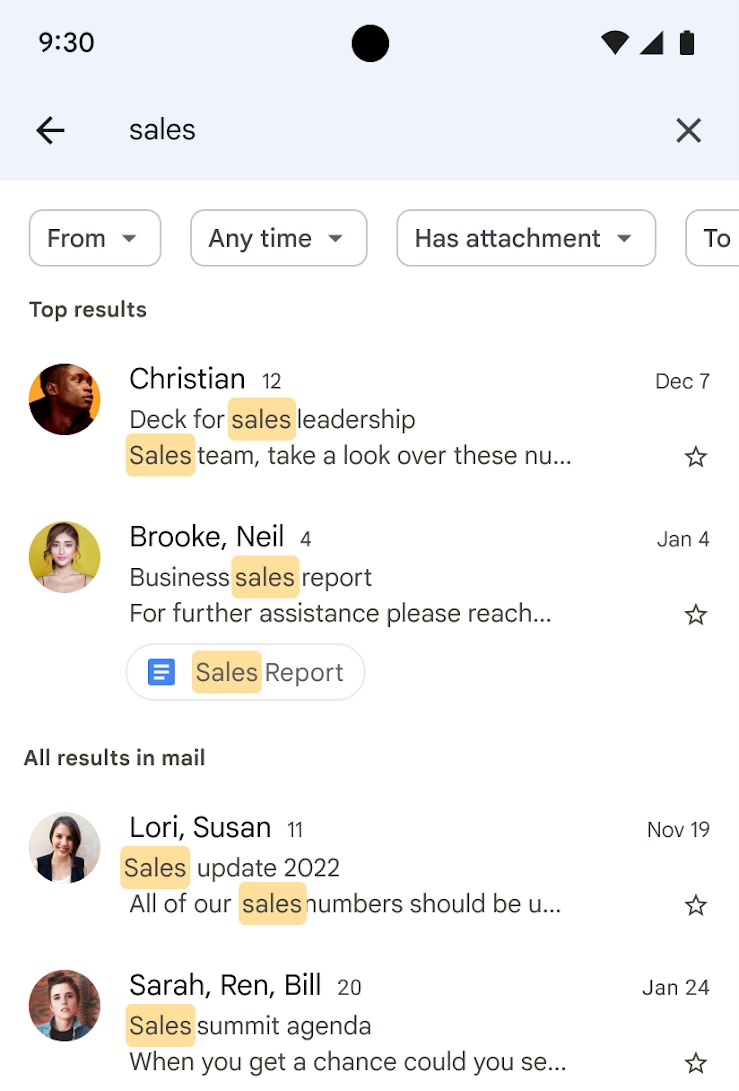
 Image: Google
Image: Google
One of the reasons Google’s Gmail achieved mass adoption was because it found which email you were searching for, fast. Now Gmail is revamping the process, calling out the emails it thinks you’re searching for—or should be.
Google said Friday that Gmail will call out the most important emails inside a separate “top results” box, using “machine learning models [that] will use the search term, most recent emails and other relevant factors to show you the results that best match your search query,” Google said in a blog post. Other results will appear below, in an “all results in mail” category, sorted by recency.
Google referred to the new search option as a “highly requested feature,” and it will be rolling out over the course of 15 days, beginning on June 2. The feature will be available to those users who have personal email accounts as well as those who subscribe to Google Workspace.
Right now, the change to Gmail’s search results applies only to the mobile app. Google hasn’t offered a timetable for when this feature will come to the desktop version of Gmail.
If you use Outlook, you’re probably aware that Microsoft’s app does something very similar, organizing any search into a “top results” box as well as chronological search results. (The Mail app within Windows does the same thing.) The reason for doing this is apparently to call out results by relevance, rather than letting a reader assume the first result is simply ordered by the most recent email exchange.

For anyone who grew up with Google, of course, this is slightly odd. One of the reasons Google and Gmail took off was because Microsoft’s integrated search was so horrific that new users flocked to Gmail just so they could find an old email. Google seems to be saying that its previous approach wasn’t paying off.
We’re also not sure if or how this will affect your ability to clean up your Gmail inbox, which involves using Google’s search and filter tools to identify and delete old, unwanted email—or just set up a backup account. Given that Google seems to be in the business of selling additional storage, we’re not sure that will ever change.
Author: Mark Hachman, Senior Editor

As PCWorld’s senior editor, Mark focuses on Microsoft news and chip technology, among other beats. He has formerly written for PCMag, BYTE, Slashdot, eWEEK, and ReadWrite.
Recent stories by Mark Hachman:
Udio’s AI music is my new obsessionBroadband ‘nutrition labels’ kick in, revealing hidden fees for ISPsHappy 20th birthday to Gmail, the email client that changed our lives




